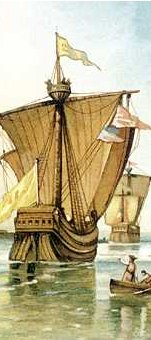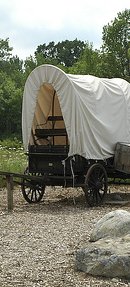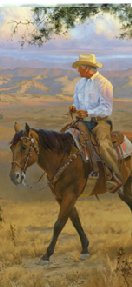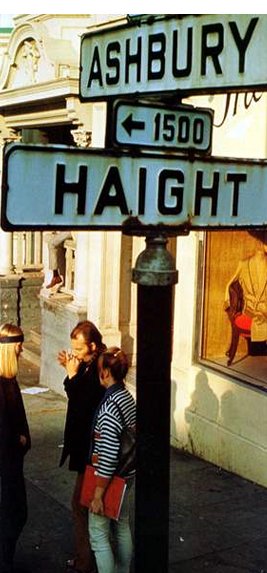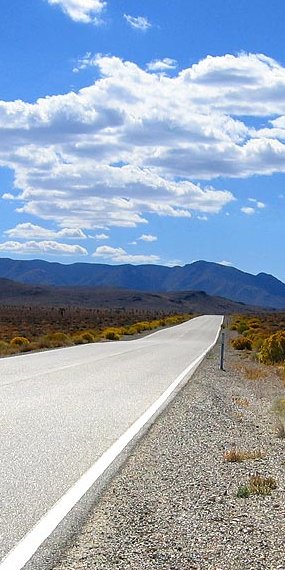All That Glitters is Not
gold Eric Kim
H.W. Brands (Henry William Brands)
was born in Portland, Oregon
is an American historian and a historical author. He has written many books
that have achieved critical acclaim and many prestigious awards. Along with his
occupation as an author and historian, Brands is also an avid book editor. Brands is also a professor at the University
of Texas at Austin,
and graduated from Stanford University.
Gold has been and will be the
driving force behind every nation; it is the life blood
of the economy and the special something that most humans search for. The
history of North America is drenched in the mineral
known as Au, or in layman¡¦s terms, gold. Before there was a united nation,
before there was a North and a South, before there was a group of thirteen
colonies, there were empires of Native Americans who were known to possess vast
quantities of gold, quantities so vast that European nations flocked to North
America in order to consume the shimmering yellow mineral. This
unquenchable thirst for wealth is one of the foundations of the creation of the
United States.
As America
developed into a thriving nation, land was needed and many people began the
journey into the West. It was not completely void of inhabitants; in fact the
Spanish, the Mexicans, and the Native Americans had already staked their claim
on California. The Mexican
government had a strong foothold in California,
but as soon as the words ¡§I have found it,¡¨1
were uttered from James Marshall¡¦s mouth in 1848, it was as if the carpet was
ripped from underneath Mexico¡¦s
feet. The discovery of
gold in California was the start
of a new era, and the start of not only a new United
States, but a completely transfigured California.
President
James K. Polk received a message from Lieutenant Loeser
that gold had been discovered in California
and Polk made ¡§an announcement that is often interpreted as the starting pistol
for the Gold Rush,¡¨2 which is a half
truth. Although Polk¡¦s announcement to the United
States prompted an exodus, the gold rush in
essence had already begun. The menagerie of people already living in California
began to flock towards the area around Sutter¡¦s Fort where the gold was found.
This menagerie that already filled California
consisted of Mexicans, Mestizos, Native Americans,
and Americans. As soon as the native Californians heard of the newly discovered
gold they abandoned their jobs and their homes and flocked toward the hot spot.
This massive migration of people resulted in many towns being deserted and
towns near the discovery to be filled to near explosion. One such town in
particular was Chagres;
eventually, Chagres became so
overpopulated that people were forced to sleep on the streets and in alleys.
The overcrowded conditions of the towns allowed diseases and poor health
conditions to spread rapidly and kill off many people, but diseases did not
prevent Argonauts (gold hunters) from swarming into the cities. Aware that many
people from all over the world were essentially throwing themselves into
California, merchants and traders knew that they could make a fortune out of
selling their supplies instead of digging for gold themselves. California
was not only a land for economic opportunity, but a chance for an adventure
that could change lives. One such adventurer was Perez Rosales who was a
wealthy philosopher whose ¡§body was hungry for adventure.¡¨3 California was a magnet not only for
those who wanted to free themselves from their previous poverty stricken lives,
but also to those who wished to leave behind their nonchalant and mundane
lives.
Travel
to the west, find a claim, mine for gold, strike it rich, and live the good
life; that was the chain of events that many who journeyed to California
sought, but that was a dream, a fallacy, an illusion. Only a few were able to
experience that rags to riches fantasy. Life as a miner was not easy, it was
hard; it was near impossible. Miners would soon realize that ¡§the
yield-per-yard mattered less than the yield-per-day, and that time is money.¡¨4 Essentially,
gold could not be obtained without time; in essence, time was gold to the
miners. The competition between the miners was so fierce that miners that were
unable to procure enough gold as others were forced to quit mining because they
had fallen behind and the gold that they had mined was not enough to survive.
Gold rush society was very fast-paced and foreshadowed how society would be
like today in the twenty first century; cities like Los
Angeles and San Francisco
during the mid nineteenth century were almost similar to how cities are today.
The importation of such a colossal number of miners turned San
Francisco into ¡§a wild place¡Ka village fast becoming a
city¡Kthat never ceased nor even much slowed.¡¨5 The
first effect of the gold rush was that many cities like San
Francisco were emptied and turned literally into ghost
towns; it was as if the inhabitants were whisked away by some unseen force.
Time would change the deserted nature of San Francisco;
more and more miners would come to California
filling up the once abandoned city. Even though San
Francisco was filled once again, it was turned into a
town of nomads; a town filled with tents that would move at the first sign of
gold. Eventually though, towns became permanent as the earlier Argonauts began
to settle down in San Francisco realizing that the search for gold was the
search of futility. Those that settled down were smart enough to know that with
the number of people constantly flooding into California,
goods and tools would be required; businesses and saloons would sprout up
faster then weeds. The gold rush had given opportunity to many people of
different backgrounds; this menagerie of people was the foundation of California.
Although California was settled
by more than Americans, Manifest Destiny had been achieved as California
began to develop.
Rome
was not built in a day, and cities in California
most certainly were not. San Francisco
was the first city of California
and showed that the gold rush life was not at all cut out to what it seemed; in
fact, ¡§it was at once urban and a frontier.¡¨6 In a sense, San
Francisco was urban because of the ridiculous influx
of people, but at the same time San Francisco
was no Arcadia, it had its faults
and was thus likened to the frontier. San Francisco
was a hotbed of moral misconduct, psychological corruption, and putrefied
health. With the many people that lived in San Francisco
a multitude of establishments developed, such as saloons and restaurants, the
latter of which was the more reputable. Saloons in many cities like San
Francisco doubled as gambling houses/card houses also
known as ¡§hells.¡¨ Even the poorest of the poorest would find themselves
frequently visiting the ¡§hells,¡¨ for either the thrill of gambling or the
chance to make an extra dollar. The specific and true reason as to why so many
people visited the gambling establishments is unknown. Why would so many people
visit the gambling houses even when they had barely enough money to survive?
The psychological health of many Argonauts was at risk as well as the physical
health. They were forced to sleep in close quarters which eliminated not only
privacy but also sanitation. Disease and psychological well being were few of
the many maledictions that plagued the miners. The West, although as urban is
it may have started to appear-was still as wild as it would ever be.
No
issue split the country as much as the issue of slavery did, and California
was no exception. California
itself ¡§had given the nation¡¦s new antislavery party its first presidential
candidate, but California itself
was rethinking its opposition to slavery.¡¨7 At
first, California had not been
effected by gold. For example during the Monterey convention of 1849
Northerners and Southerners were too distracted with the gold to even consider
talking about the issue of slavery, but as chances and opportunities for gold
diminished, the animosity between the northerners and the southerners
increased. During the middle of the 1850s California
started to become more sympathetic towards the slave South.
The issue of slavery never spawned as much violence as it did back east. Before
the Civil War, the South received considerably less gold than the North, the
reason being that the South¡¦s lack of large financial goods that the
Californians wished to buy. During the beginning of the Civil War, California¡¦s
miners were actually able to produce more than six hundred million dollars in
gold, and during the four years of the war one hundred thirty million more
dollars in gold was produced. Not all of the money found and produced during
the gold rush went straight to the East; the money had to be used to build up
towns like San Francisco and other
developing towns in California
requiring more than half a billion dollars worth of gold. Nonetheless, not
everyone that traveled to the West achieved riches beyond imagination and ¡§the
metaphysics of gold¡Kcaused a quarter million people from all over the planet to
abandon their ordinary pursuits and hurry to California,¡¨
yet ¡§the gold of California was
corrosive of personal happiness¡Kit slipped through the hands of those who
acquired it.¡¨8 The
news that gold had been found in California
had the power to attract more than a quarter of a million people to the New
Frontier; the New Frontier was like a dream, but in the end dreams proved to be
false-like a bittersweet sentiment. Truly, it was as if a whole nation had
uprooted itself and transplanted itself into California, and of all those
people searching for a better life, only a few actually managed to have that
fairytale ending.
In
his novel The Age of Gold-The California
Gold Rush and the New American Dream, H.W. Brands
elaborates on the life long concept that: wealth is everything. Brands not only
shows that the desire for wealth has the power to destroy, but also expands on
how important California was in
the scheme of so many things. Brands¡¦ whole scheme of things can be summed up
in the words of Horace Greeley: ¡§We are on the brink of the Age of Gold,¡¨ and
the words of Brands himself: ¡§No one in California
counted the failures¡Kthe age of gold was also the age of speculation,
corruption, and consolidation.¡¨9 To
Brands, the gold rush was an era of time in which the American Dream of today
was fully established, but along with the American Dream the American Nightmare,
so to speak, was also established. The Gold Rush had the ability to warp the
minds of everyone; the Gold Rush brought out the polarities of both evil and
good in everyone. Brands thesis is basically that, although the gold rush had a
benevolent impact upon the United States-and
most importantly California-it was a double edged sword, as the inner evils of
man were witnessed.
H.W. Brands¡¦ The Age of
Gold-The California
Gold Rush and the new American Dream focuses on the impact that the gold
rush had on the world, the country, the state, the city, and ultimately the
individual. Brands does not seem to take any bias or
one sided opinion, in his novel; he writes as if he were an omniscient narrator
taking no one¡¦s side. The novel itself is not a historical tome filled
completely with facts, it contains anecdotes of many different individuals as
well as the important, and not dreary monotonous facts. Brands
proves to be a Progressive historiographer, one reason being that he
seems to always delve into the other side, he never states only one side.
According to Brands, ¡§Americans from every region of the country¡Kmanufacturers,
southern planters, western farmers, lawyers, doctors¡K¡¨ flocked toward
California; Brands does not focus on one group and its entirety, Brands chooses
to illuminate the journey of all types of classes.10
Brands also notes the
psychological and economic impact that the Gold Rush had on its attendees. He
explores how the economy of California
was affected and how the mental stability of the miners was also effected. In its entirety Brands novel does not take a
biased opinion and clearly examines both sides when two sides are present.
The
gold rush, to many, redefined the American Dream into
what it is now today. Brands has crafted a novel that talks of both the social
and economical ramifications of the Gold Rush and Martin Padget
describes Brands¡¦ book as making
society feel ¡§uncomfortably aware of what it means to live in a global
environment in which the forces of materialism and commodification¡K
[Making society] dictate the exploitation of ever-diminishing natural
resources, with potentially hugely damaging consequences.¡¨11
Brands also, according to Charles L. Lumpkins puts a
light to the fact that ¡§gold gave material promise to the American Dream and
made gold the lubricant of the world economy.¡¨Although
Brands intended to tell the story of the past, the result of his novel was that
society became aware that the Gold Rush of the eighteen fifties is very similar
to contemporary society.
Brands¡¦
novel, The Age of Gold, is a historical novel unlike many others.
Besides deluging the reader with facts, it provides many anecdotes and first
person experiences that allow the reader to actually relive what it would have
felt like to be an Argonaut during the mid-eighteen fifties. One such story
involves a Miss Jessie the future Mrs. Fremont Brands¡¦ describes her as being
¡§extremely intelligent, [but] lacks the docility of a model student.¡¨12
Although the side stories prove to be entertaining at times, the stories over
powered the important facts that Brands tries to convey. Overall, Brands¡¦ novel
provided enough factual information paired with anecdotes that the history of
the gold rush became bearable, even to an average person.
Many
claim that Polk¡¦s official announcement that gold was found in California
was the starting point of the entire gold rush, but that is simply false. Brands reveals that ¡§every country that bordered the Pacific
Ocean was closer to California
than were the states of the American union.¡¨13
Also, the gold rush had already started in California,
as soon as the word got out that gold, the most precious metal in the civilized
world, had been discovered, Californians, South Americans, and Native Americans
immediately dropped what they were doing to search for instant wealth. Because the Gold Rush took place in California,
the state itself was completely changed by the effects of the Gold Rush. The United
States as a whole was not as significantly
changed as California; in fact
the whole social and economic makeup of California
was altered by the Gold Rush.
Brands
believes that California was the most important area of the Gold Rush, because
it was in California where the gold was found, it was in California where riches
were made, it was in California that dreams were crushed, and it was in
California where ¡§the gold rush established a new template for the American dream.¡¨14 Out of the entire United
States, Brands just sees California
as a regular state, but in the scheme of the Gold Rush, Brands makes it clear
that California was the start and
the most important factor.
H.W. Brands¡¦ novel tells the facts of the Gold Rush, how it
changed the world, the countries, the states, the cities, and the people
involved. Brands also destroys the glamorization of the gold rush, he sheds a
light as to what the real cause of the gold rush was, the real events that
occurred in the gold rush, and the real ramifications that resulted from the
Gold Rush. Brands, although he may not have intended to,
forces society to open their eyes to the fact that it is destroying the limited
amount of resources left on the planet. Like the gold rush, if society
continues its path of wanton destruction a brand new society might be born, or
that society will crack and be destroyed by the loss of natural resources.
There was no political purpose behind the gold rush, in fact ¡§the gold rush
shaped history profoundly because it harnessed the most basic of human desires,
the desire for happiness. None of the gold-seekers went to California
to build a new state¡Kthey went to California
to seek individual happiness.¡¨15
1. Brands, H.W... The Age of Gold:
The California Gold Rush and the
New American Dream. First. New
York: Random House, 2002. 16
2. Brands 47
3. Brands 49
4. Brands 201
5. Brands 203
6. Brands 247
7. Brands 371
8. Brands 485
9. Brands 443
10. Brands 70
11. Padget, Martin. Rev. of The Age of Gold: The California
Gold Rush and the New American Dream, by. H.W. Brands. Powell¡¦s Books 31 May 2008 < http://www.powells.com/review/2005_05_15.html>
Paragraph 5
12. Lumpkins, Charles. Rev. of The Age of Gold: The California
Gold Rush and the New American Dream, by. H.W. Brands. Library Journal 31 May 2008< http://www.libraryjournal.com/>
Paragraph 1
13. Brands 65
14. Brands 47
15. Brands 489
16. Brands 491


